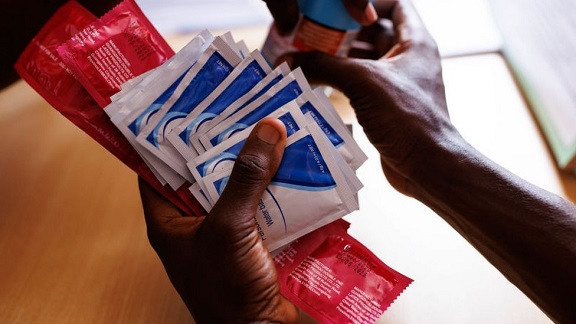Ugandan lawmakers have rejected a government proposal to allow 15-year-old girls to access birth control pills to reduce high levels of pregnancy.
Deputy Speaker Thomas Tayebwa called the idea "devilish", saying it would "formalise [the] defilement" of girls.
A senior health ministry official said the "stigma" around young people using contraceptives should end.
Nearly a quarter of 15- to 19-year-old girls in Uganda are either pregnant or are already mothers, a survey says.
The rate increased sharply during the Covid lockdown when schools were shut for almost two years.
During a highly charged parliamentary debate on Tuesday, MP Lucy Akello questioned whether the age of consent was being lowered from the current 18 years to 15 years, the state-owned New Vision newspaper reported.
She described the proposal to offer contraceptives to 15-year-old girls as "scary".
Ms Akello said she did not use contraceptives. "I use the natural method, the one God gave me."
In her response to the debate, Primary Healthcare Minister Margaret Muhanga said the proposal had not been approved by the government but had been made by a senior medical officer, Dr Charles Olaro.
She asked if it was better for a child to get pregnant and then go on to die while giving birth, adding there was "so many teenage pregnancies".
Dr Olaro told the privately owned Daily Monitor newspaper that access to reproductive health information was "not just a matter of choice; it is a matter of fundamental rights".
"It is essential that we foster an environment where youth can access information on sexual and reproductive health and contraceptives for those in need without stigma, discrimination, or judgment," Dr Olaro was quoted as saying.
However, the deputy speaker said the proposal "should never see the light of day".
Uganda is a deeply religious society, and a group of religious leaders has also opposed the proposal, saying teenagers should just abstain from sex.
BBC





